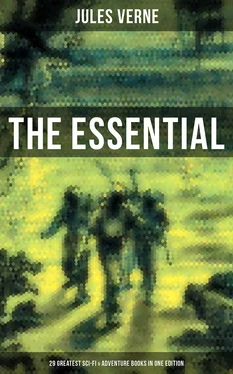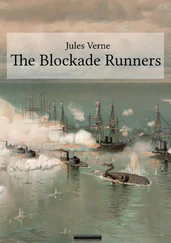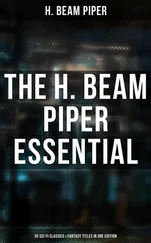On the 27th they found a sextant half-buried in the snow, then a leather bottle; the latter contained brandy, or rather a lump of ice, with a ball of snow in the middle, which represented the spirit; it could not be used. It was evident that they were following in the steps of some poor shipwrecked fellows who, like them, had taken the only practicable route. The doctor looked carefully round for other cairns, but in vain. Sad thoughts came into his mind; he could not help thinking that it would be a good thing not to meet with their predecessors; what could he and his companions do for them? They wanted help themselves; their clothes were in rags, and they had not enough to eat. If their predecessors were numerous they would all die of hunger. Hatteras seemed to wish to avoid them, and could he be blamed? But these men might be their fellow-countrymen, and, however slight might be the chance of saving them, ought they not to try it? He asked Bell what he thought about it, but the poor fellow’s heart was hardened by his own suffering, and he did not answer. Clawbonny dared not question Hatteras, so he left it to Providence.
In the evening of the 27th, Simpson appeared to be at the last extremity; his limbs were already stiff and frozen; his difficult breathing formed a sort of mist round his head, and convulsive movements announced that his last hour was come. The expression of his face was terrible, desperate, and he threw looks of powerless anger towards the captain. He accused him silently, and Hatteras avoided him and became more taciturn and wrapped up in himself than ever. The following night was frightful; the tempest redoubled in violence; the tent was thrown down three times, and the snowdrifts buried the poor fellows, blinded them, froze them, and wounded them with the sharp icicles struck off the surrounding icebergs. The dogs howled lamentably. Simpson lay exposed to the cruel atmosphere. Bell succeeded in getting up the tent again, which, though it did not protect them from the cold, kept out the snow. But a more violent gust blew it down a fourth time, and dragged it along in its fury.
“Oh, we can’t bear it any longer!” cried Bell.
“Courage, man, courage!” answered the doctor, clinging to him in order to prevent themselves rolling down a ravine. Simpson’s death-rattle was heard. All at once, with a last effort, he raised himself up and shook his fist at Hatteras, who was looking at him fixedly, then gave a fearful cry, and fell back dead in the midst of his unfinished threat.
“He is dead!” cried the doctor.
“Dead!” repeated Bell.
Hatteras advanced towards the corpse, but was driven back by a gust of wind.
Poor Simpson was the first victim to the murderous climate, the first to pay with his life the unreasonable obstinacy of the captain. The dead man had called Hatteras an assassin, but he did not bend beneath the accusation. A single tear escaped from his eyes and froze on his pale cheek. The doctor and Bell looked at him with a sort of terror. Leaning on his stick, he looked like the genius of the North, upright in the midst of the whirlwind, and frightful in his immobility.
He remained standing thus till the first dawn of twilight, bold, tenacious, indomitable, and seemed to defy the tempest that roared round him.
Table of Contents
The wind went down about six in the morning, and turning suddenly north cleared the clouds from the sky; the thermometer marked 33 degrees below zero. The first rays of the sun reached the horizon which they would gild a few days later. Hatteras came up to his two dejected companions, and said to them, in a low, sad voice:
“We are still more than sixty miles from the spot indicated by Sir Edward Belcher. We have just enough provisions to allow us to get back to the brig. If we go on any further we shall meet with certain death, and that will do good to no one. We had better retrace our steps.”
“That is a sensible resolution, Hatteras,” answered the doctor; “I would have followed you as far as you led us, but our health gets daily weaker; we can scarcely put one foot before the other; we ought to go back.”
“Is that your opinion too, Bell?” asked Hatteras.
“Yes, captain,” answered the carpenter.
“Very well,” said Hatteras; “we will take two days’ rest. We want it. The sledge wants mending. I think we had better build ourselves a snow-house, and try to regain a little strength.”
After this was settled, our three men set to work with vigour. Bell took the necessary precautions to assure the solidity of the construction, and they soon had a good shelter at the bottom of the ravine where the last halt had taken place. It had cost Hatteras a great effort to interrupt his journey. All their trouble and pain lost! A useless excursion, which one man had paid for with his life. What would become of the crew now that all hope of coal was over? What would Shandon think? Notwithstanding all these painful thoughts, he felt it impossible to go on any further. They began their preparations for the return journey at once. The sledge was mended; it had now only two hundred pounds weight to carry. They mended their clothes, wornout, torn, soaked with snow, and hardened by the frost; new moccasins and snowshoes replaced those that were worn out. This work took the whole day of the 29th and the morning of the 30th; the three travellers rested and comforted themselves as well as they could.
During the thirty-six hours passed in the snow-house and on the icebergs of the ravine, the doctor had noticed that Dick’s conduct was very strange; he crept smelling about a sort of rising in the ground made by several layers of ice; he kept wagging his tail with impatience, and trying to draw the attention of his master to the spot. The doctor thought that the dog’s uneasiness might be caused by the presence of Simpson’s body, which he and his companions had not yet had time to bury. He resolved to put it off no longer, especially as they intended starting early the next morning. Bell and the doctor took their pickaxes and directed their steps towards the lowest part of the ravine; the mound indicated by Dick seemed to be a good spot to place the corpse in; they were obliged to bury it deep to keep it from the bears. They began by removing the layer of soft snow, and then attacked the ice. At the third blow of his pickaxe the doctor broke some hard obstacle; he took out the pieces and saw that it was a glass bottle; Bell discovered a small biscuit-sack with a few crumbs at the bottom.
“Whatever does this mean?” said the doctor.
“I can’t think,” answered Bell, suspending his work.
They called Hatteras, who came immediately. Dick barked loudly, and began scratching at the ice.
“Perhaps we have found a provision-store,” said the doctor.
“It is possible,” said Bell.
“Go on,” said Hatteras.
Some remains of food were drawn out, and a case a quarter full of pemmican.
“If it is a hiding-place,” said Hatteras, “the bears have been before us. See, the provisions are not intact.”
“I am afraid so,” answered the doctor; “for–-“
He was interrupted by a cry from Bell, who had come upon a man’s leg, stiffened and frozen.
“A corpse,” cried the doctor.
“It is a tomb,” answered Hatteras.
When the corpse was disinterred it turned out to be that of a sailor, about thirty years old, perfectly preserved. He wore the clothes of an Arctic navigator. The doctor could not tell how long he had been dead. But after this corpse, Bell discovered a second, that of a man of fifty, bearing the mark of the suffering that had killed him on his face.
“These are not buried bodies,” cried the doctor, “the poor fellows were surprised by death just as we find them.”
Читать дальше












